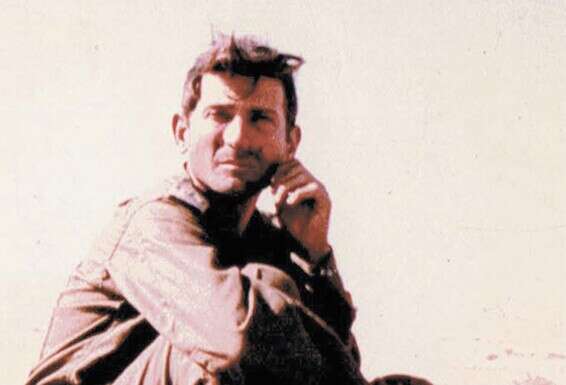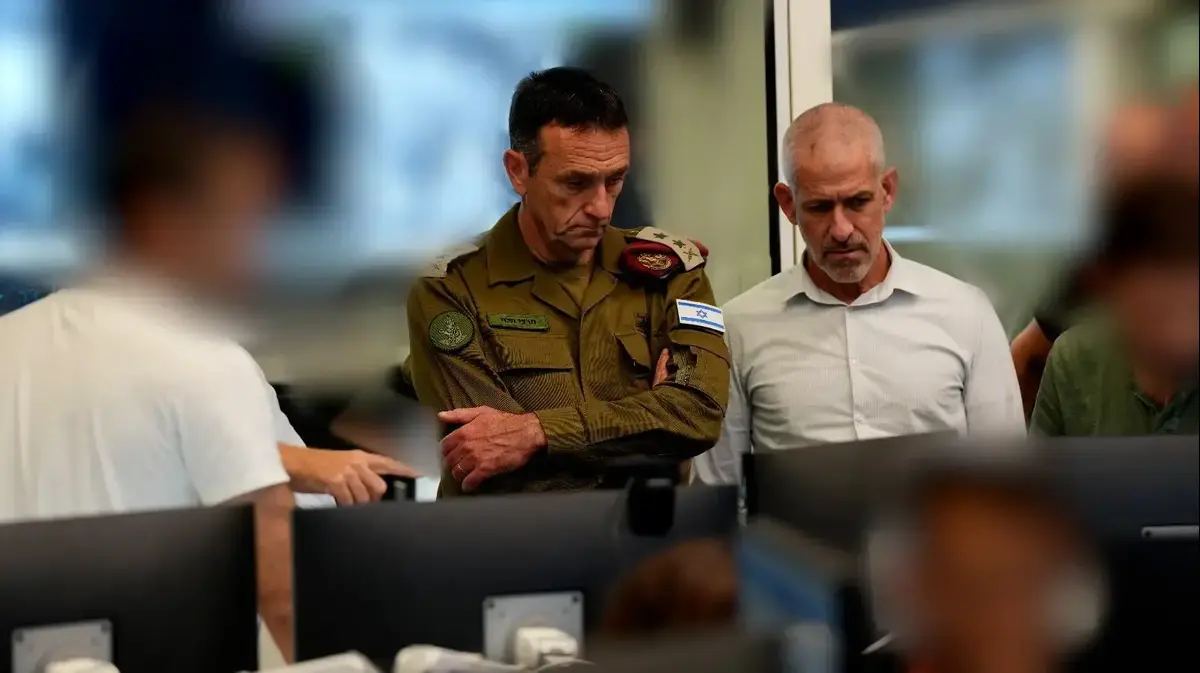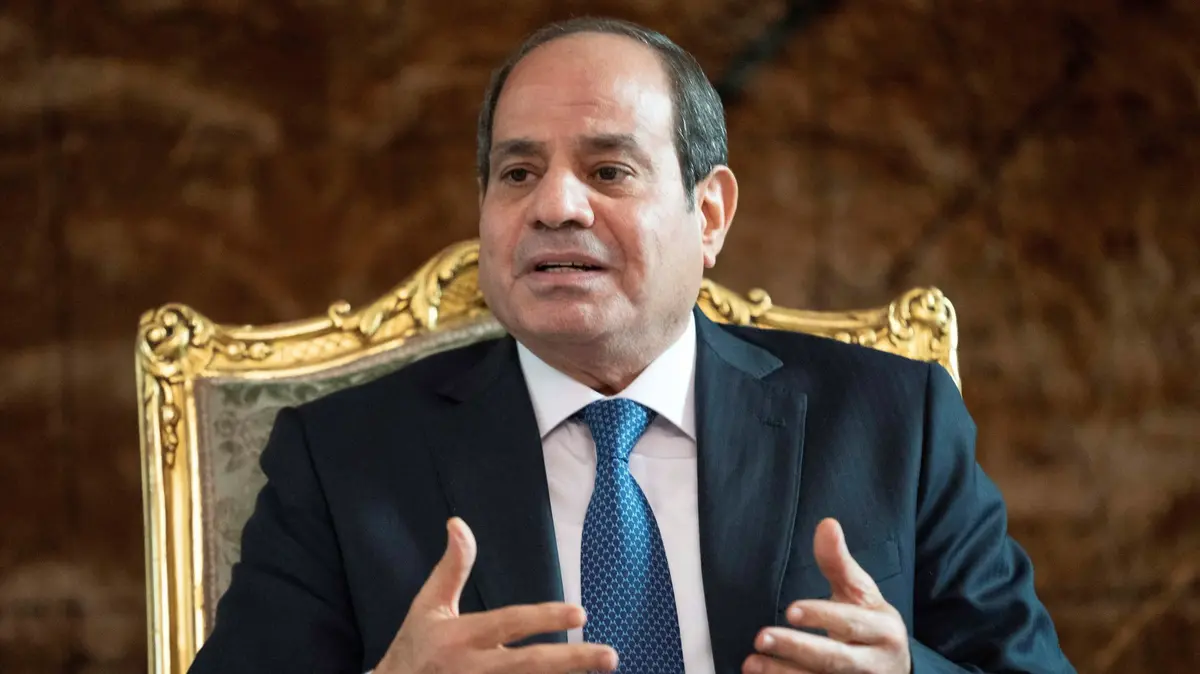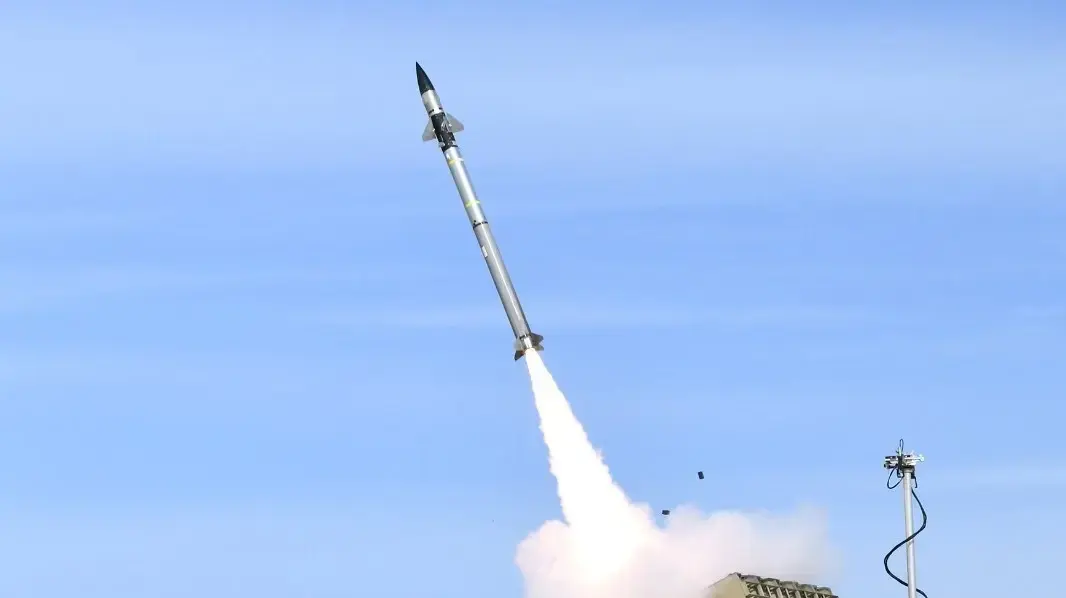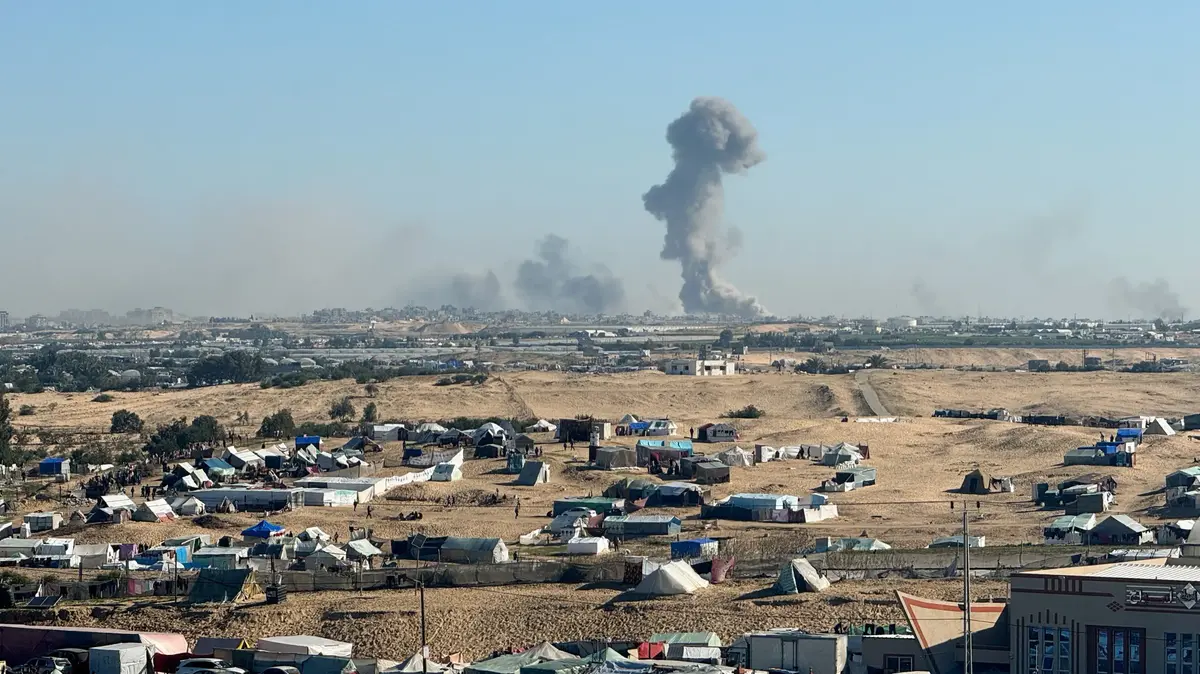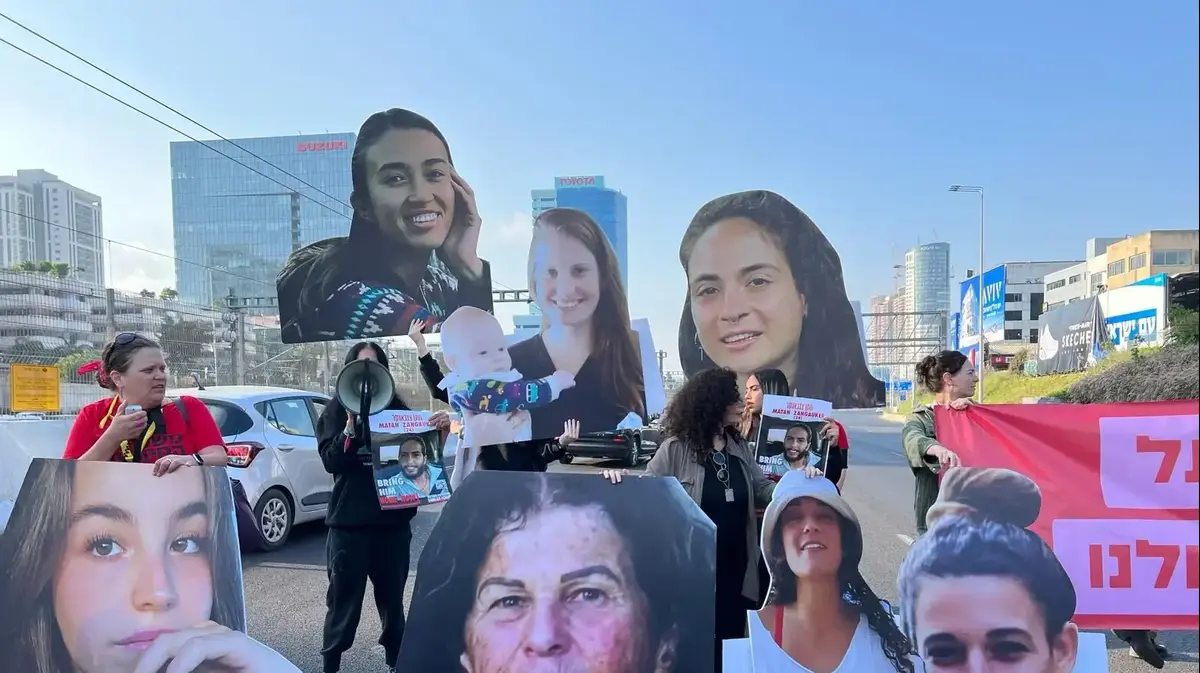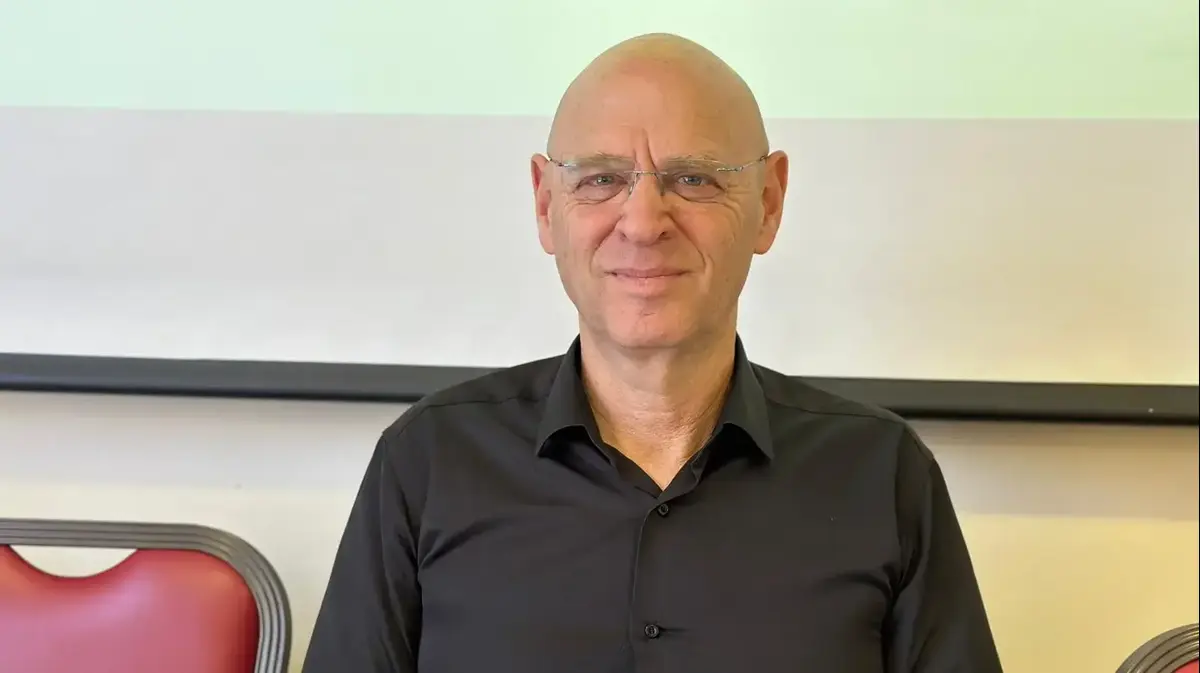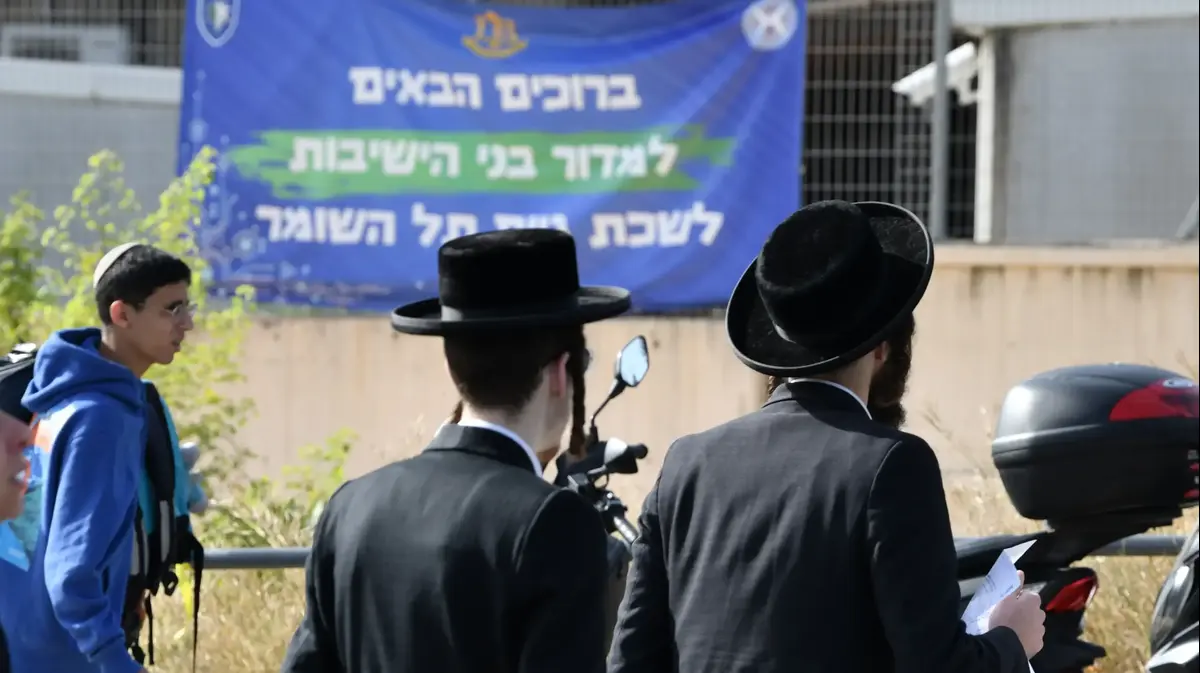Nearly 50 years later, Skel does not forget the surprise that befell him in October '73. The turmoil in which he served in Sinai
"I heard and saw the pounding of Egyptian artillery all along the canal."
Skel
Photography:
Gideon Markowitz
On the eve of Rosh Hashanah 5734, which took place in October 1973, Maj. Gen. (Res.) Dr. Emanuel Skel, now 80 years old and then battalion commander of the 52nd Armored Battalion of the 14th Brigade, spent time at his home in Rehovot. His seventh birthday, and Skel went out for a brief respite from the operational employment in the Suez Canal.When he returned to his sector, the southern sector of the canal, he did not imagine what that Tishrei month was going to look like, one of the worst the country knew.
"On the eve of Yom Kippur, and I was fasting, my wife Edna called and went to sleep in my caravan in Mitla. At ten in the morning I was woken up and told to go to a command group at Tessa base. Even there it was not exactly clear what was happening, although already at four-thirty in the morning Chief of Staff Dado said It's a war, but at ten o'clock at one o'clock Brigadier General Amnon Reshef called the phone and he quickly returned and told us, 'Activate your pigeon house now.'
"I was driving fast back to Mitla and suddenly I see four low-flying planes. These were Egyptian Sukhoi planes, but I said 'why do our phantoms suddenly fly on Yom Kippur?'
I was still in repression. I looked to the left, I saw Umm Hashiva on fire after the planes bombed it, and then I heard and saw the Egyptian artillery pounding all along the canal. .
"I arrived at Mitla at about two o'clock in the afternoon, I went up to the Knesset to catch up and I quickly got off at Taoz Feather, where I got on the tank and we went to join my B Company, which had already advanced towards the strongholds.
Her lieutenant colonel, Hanoch Sandrov, was wounded in the eye and then killed at four in the afternoon by a missile hitting his tank.
"On the ramp south of the road we saw the company's first tank on fire and the four crew members lying shot next to it. I grabbed my head and said 'What, my tank is on fire?' "They just fired at us. I hit the turret with my left hand, I said to myself, 'What an idiot we are, it shouldn't have been like this,' and then I commanded 'Team, Bazooka Fire' and we started fighting."
"The Egyptians put down hellfire"
Fighting under heavy Egyptian fire was very difficult.
"I commanded the fighting at the Mitla junction and talked about it with my maps," Skel recalled, "We fired at the Egyptians with machine guns and called the patrol company, which arrived at four-thirty in the afternoon.
Together with them, we launched the first IDF counterattack, which included my tank, a tank of the lieutenant commander of Company B, Avi Gur, and five APCs from the patrol company.
We drove on the canal road, stormed the ramps in the back and the Egyptians fled.
We managed to occupy the positions back.
"In the twilight of the evening, the area was quiet, and Lt. Col. Avi Gur was involved in towing the damaged tools and evacuating the injured to Dare Feather.
Suddenly I saw an Egyptian force on the ramp 50 meters away from me, and an Egyptian soldier was standing in front of me, aiming at Kalashnikov Ali.
I said 'drive back fast', but the reverse gear did not come on.
I was driven.
A beautiful place to drive, right?
I started firing in the direction of the Egyptians with the commander's machine gun and luckily they escaped, then I changed tank.
As darkness fell I was left a lone tank on the ramps and the Egyptians dropped incendiary fire on me.
Murderous artillery, including Katyushas.
Skel as a battalion commander in the war // Photo: Avi Gur
"Meanwhile, the patrol company's terrified liaison broke into the regimental liaison network shouting 'The RPG was killed, everyone was killed!'
It turned out that an artillery shell fell on the APC of the patrol officer Nahum Shemer and killed him and four other fighters at the entrance to the cracking stronghold A.
It was very difficult to locate the damaged ADF, but in the end we succeeded
"At eight o'clock in the evening I was informed that Company K of the 1951st Battalion of the 401st Brigade was coming to reinforce me, and I heard their brigade larvae ringing in the dark and in the rising moonlight of Yom Kippur I saw the tanks gliding in my direction.
So I said to myself, 'It's going to be okay, we'll win the war.' "
"One of the Greatest Failures"
On the morning of the second day of the war, October 7, Skel was on the same line of positions.
"We stayed exactly where we were at noon the day before, we did not move," he emphasizes, "later in the day we started to see Egyptian tanks crossing the canal, but they were far from us because they knew our tanks were concentrated near the strongholds and therefore succeeded between the strongholds.
"It was in my opinion one of the biggest failures of the war, because we did not understand then that if we sent tanks to the points of success we would stop the Egyptians and hit them a market on the thigh. If there were few tanks, four companies of the 46th Battalion, would move south to the point of success. "137 and 141 on the canal, we would have inhibited the success of the Third Army."
Cover of Skel's book
Skel, whose battalion was transferred to the command of the 401st Brigade, received an order from Brigadier General Dan Shomron to go back a little, in the direction of Taoz Feather. "I traveled east only 3 km, and not to a feather that was 10 km away, so as not to lose a large area. Too, ”he says,“ around one in the afternoon I went out on a counterattack, drove west towards the Madonna and the canal and then destroyed my first Egyptian tank, at a range of 3,800 meters.
It was a great feeling.
"I told Dan I'm in the positions and I have successes, and 'if you put the 3rd (195th Battalion) to my left, we'll push them back.' But 195 could not come and I had to drive back because I could not be left alone in the positions. "Three tanks, but during the night tools began to accumulate and by morning I was already with 14 tanks."
On the 8th of the month, the day of the IDF's failed counterattack, Skel set out in the morning with his forces to the dunes south of Keret Moreh, which control the canal road. On the 9th of the month he was there with two companies, while the Egyptians sent a tank battalion from the pier.
"They started shortening ranges towards us and at about 2,000 meters we started hitting them," he says, his eyes twinkling. "Within 20 minutes we destroyed an entire Egyptian battalion, all on fire, stuck them one by one. I thought to myself what a Napoleon, so I climbed a hill to "To see the battlefield, and some Egyptian tank that I thought was already dead stuck a shell in my caterpillar and tore my tank wing. Shrapnel flew in my face. We quickly got off the position and as we got down hit where we were another shell."
In the following days, the battalion and the brigade fought brakes on the Mitla axis, but the war called for another heroic battle.
"On the 12th of the month we were called to the aid of the 195th Battalion, which attacked a hill called the Pillar Hill," he recalls, "there was a hard battle and I went to help with my tank. Suddenly, after passing a small dune, I found myself in a sort of courtyard. Egypt.
"I started firing machine guns and throwing grenades, and suddenly two tanks appeared in front of me in the 400-meter range. Giora Ben-Ari, my kibbutz, who was also the liaison officer, entered a range of 1,200, which is a combat range, and we fired first.
We missed the first shell, but flew a lot of sand on the tank we fired at.
With the second shell we hit the second tank and then we went back and destroyed the first tank as well.
"When I reset, I realized that I was almost alone and decided to go back. Later it became clear to me that we had an Egyptian soldier with an Egyptian RPG standing behind us with these two tanks, but my KSA APC, Zuta, eliminated him and actually saved me. And the team is directly harmed. "
Skel continued the war in the southern section of the canal and on October 23 was called to cross it.
"We crossed the Galilee Bridge and entered Africa. We drove west and on the 24th of the month came the ceasefire, and after that we organized in a place called the Geneva Hills.
" When we were there, Haim Guri, whom I knew before and I am proud to call my friend, came to me.
I saw him sitting with a downcast face and when I asked him 'what happened?'
He replied sadly, 'You do not know what is happening in the home front'.
I understood this very well during my first vacation after the war, in the gloomy autumn of the end of November. "
For his part in the war, Skel was awarded the Medal of Courage.
His battalion, the 52nd Battalion, has since remained in the 401st Brigade, and he and his men sat at the end of the war in the 101st km.
"The land has changed its face"
The war was the culmination of a particularly long period of service, seven turbulent years, which Skel spent in Sinai and on which he wrote his book "Sinai in the Heart" (published by Lior Sharaf - Distributions, editor: Danny Dor), which was published recently.
He was preceded by the books "The Regular Will Bloom", for which he won the Yitzhak Sadeh Prize, "Ben Ha'aretz", "Because Her War Is So Long" and "The Days of Lebanon", which describes the fighting of the 252nd Division that he commanded during the Galilee Peace War.
He is 80 years old, a native of Moshav Beit Yosef in the Jordan Valley ("a hard, hot and dry place, which Bialik called 'summer squirrels'").
His father was born in Damascus and his mother was born in Poland, and when he was 5 he moved with his family to Holon, where he grew up.
He spent his regular service in the Golani, graduated as a young lieutenant, went to study geology at the Hebrew University of Jerusalem and met his wife Edna. In September 1966 their eldest son Yoav was born, in 1969 the daughter Vered and in 1973 the youngest son Avner.
After graduating, he began working at the Geological Survey, but the Six Day War, in which he served as a reservist, destroyed the cards.
"The land changed its face. Jerusalem became a 'city of many nations,' it was a completely different feeling and I decided to return to the army, to the armor. I went to Israel Tal, Talik, who is a key figure in my life, he looked at me with his penetrating eyes and said 'OK'.
"On July 28, 1968, I put on my uniform again and went to convert to armor, to the tanks of the centurion, to the whips. Opposite Firdan, in the central section of the canal, where I had 'almost hit', one of ten I had in my career.
I was standing in a place called the palm trees and a 152mm shell landed 20cm from my right sleigh.
I was thrown like a missile into the turret and the old, heavy centurion growled, sighed, and landed on the larvae.
I said, 'Drive back fast,' I got off the stand and covered the artillery in my favor. "
King of Sinai
Skel was given his next position in July 1970 by Avraham Aden, "Bern", who was the commander of the Armored Brothers.
"He told me with a smile 'You will be the commander of the 14th Armored Brigade patrol company, and this is where my true love story with Sinai began. I arrived at the post in September 1970, right at the end of the war of attrition. I drove around with the jeep everywhere, I was King of Sinai."
Skel then served as deputy commander of the 9th Battalion and in May 1972 the division commander Dan Lanner appointed him commander of the 52nd Battalion, the position in which he served in the war.
After him, Brigadier General 401 Dan Shomron appointed him his deputy, a position in which he also remained as the deputy of Ehud Barak, who replaced Samaria, and in September 1975 he replaced Barak as Brigadier General.
He later served as commander of the Armored School and as commander of the 880th Division, as chief of staff of the Southern Command and as commander of the 252nd Division, with which he fought in the Lebanon War.
In April 1985, he was appointed general, and on September 5, 1986, his eldest son, Yoav, who had served in the Golani Regiment, was killed during an operation in Lebanon.
In January 1988, he was discharged from the IDF.
In "Citizenship" he served as CEO of Phosphate Company in the Negev, a position for which he won the Kaplan Prize, and then returned to uniform, this time as Commander of the Field Forces. At the end of a challenging four-year term, he was finally released, and served ten years as CEO. A, Eilat Ashkelon pipeline.
"I served in Sinai more than any other officer in the IDF," he says, "and the Yom Kippur War was a kind of closing circle for me, because as a battalion commander in the 77th Battalion I was in the central sector, as a patrol company commander I was 'King of Sinai' The 9th Battalion was in the northern sector and as the 52nd Battalion I was in the southern sector, so I plowed Sinai along its length and breadth, from the magmatic block in the south to the huge dunes on the Mediterranean coast.
"I end the book by saying that as the commander of the 252nd Division, I made sure that the IDF training would still be held in Sinai, and I tried every time to go down to the training that concludes there.
Just before completing the withdrawal from Sinai I arrived at the last examiner - the night exercise - of the last company that trained in Sinai.
At the end of the exercise I asked the crew members 'Who was the gunner who fired the last shell?'
A staff member stood up and raised his hand, convinced that he had done something wrong.
I calmed him down and told him that he had the privilege and honor of being the tank gunner who fired the last IDF cannonball in Sinai, I wish.

